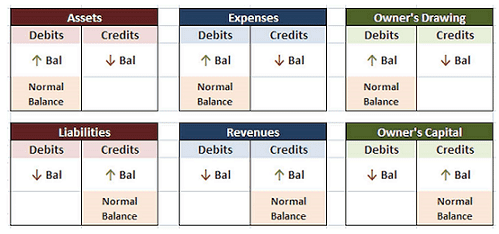
Most small businesses start with cash accounting, but as they grow, accrual accounting becomes more useful for understanding long-term financial health. Tracking fixed assets and managing expenses is a cornerstone of small business accounting 101. It keeps your finances in check and ensures you’re ready for tax season.

Sample Transaction #2
To help equip you with the knowledge to tackle your financial management confidently, we’ve put together this accounting 101 guide. You already know this, but just to make sure it’s crystal clear, taxes are ridiculously complicated. Small-business taxes vary between industries, states, and business types, so to get the best advice on what taxes your business needs to pay, consult with your accountant. For the most part, though, you’ll probably end up paying income taxes, sales taxes, and payroll taxes. Most accounting software automates entering information from the documents above. For instance, receipt scanners let you take photos of receipts that you upload to your software for easy journal-entry generation.
- Because understanding how every quote and expense gets logged helps you avoid pricing errors, underestimating delivery costs, or burning through cash without realizing it.
- Our Quick Tests with Coaching deepen your knowledge by explaining the “why” behind each answer, so you can go from memorizing to understanding.
- It represents the value that shareholders or owners would receive if all liabilities were paid off.
- If a company’s stock is publicly traded, earnings per share must appear on the face of the income statement.
- The cash flow statement monitors all the cash coming in and going out of your business.
- A simple Excel sheet might work if you own a small business, but as transactions increase, software becomes more efficient.
Operating Profit Explained: What It Means for Your Business

Be sure to check out our short glossary of accounting terms to learn more. Angela is certified in Xero, QuickBooks, and FreeAgent accounting software. To simplify bookkeeping, she created lots of easy-to-use Excel bookkeeping templates. Regardless of business size, even if you’re a sole trader, you must track income and expenses for HMRC.
- Another easy to use option that’s perfect for self-employed entrepreneurs who need an affordable accounting solution is Neat.
- “Cash basis accounting is easier, but accrual accounting portrays a more accurate portrait of a company’s health by including accounts payable and accounts receivable,” wrote Investopedia.
- A balance sheet gives an overview of what your business owns (assets) and what it owes (liabilities) at a specific point in time.
- There are also some restrictions set by the IRS on who can use the cash accounting method.
- Let’s dive into some key concepts, which range from small business funding opportunities to bank account options and more.
- Marilyn nods and shows Joe how these are reported in accounts entitled Vehicles, Cash, Supplies, and Equipment.
Accounting vs. bookkeeping services for small business

The chart of accounts consists of balance sheet accounts (assets, liabilities, stockholders’ equity) and income statement accounts (revenues, expenses, gains, losses). The chart of accounts can be expanded and tailored to reflect the operations of the company. Notice that Debt to Asset Ratio the year-to-date net income (bottom line of the income statement) increased stockholders’ equity by the same amount, $180.
- Be sure to take advantage of free trials to get a feel for each platform before making your decision.
- This method employs the double-entry system to record entries more accurately.
- Many small businesses use a cloud-based inventory management system that provides real-time data when needed.
- You’ll want to gather and record all your transactions, usually weekly, but you can do this daily or bi-weekly, depending on your volume.
- The book value of a company is the amount of owner’s or stockholders’ equity.
- The last component of small business accounting is understanding and meeting your tax obligations.
Cash is the lifeblood of businesses so ensuring you always have enough to operate is a step in itself. Whether you’re a one-person accounting for llc show or have a team behind you, understanding the financial health of your business is vital for long-term success. It depends on the size of your business and the complexity of its operations. Outside accountant costs typically increase with the size of the business.
